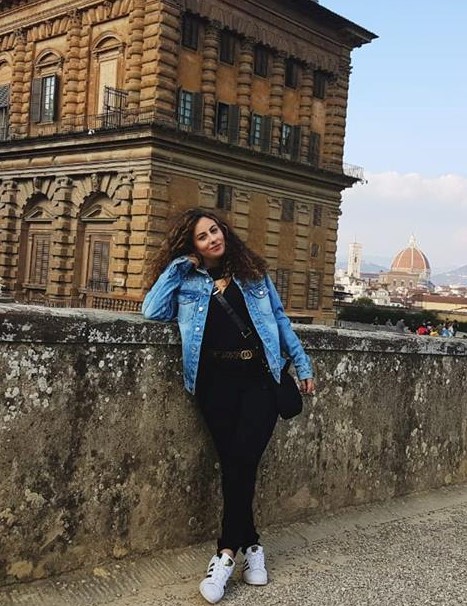ESR2 - Costantina Sofroniou
 |
"Hi! I am Constantina Sofroniou and I come from the beautiful island of Cyprus! I studied Chemistry at the University of Cyprus (UCY) and then I got my Masters by research in Physical Chemistry also from UCY. After a two month break for an Erasmus+ placement at the University of Florence, I am now more than ready and super excited to start my PhD! I have always been passionate about chemistry and research and the opportunity to work in a Marie Curie project has always been a dream of mine! What I find particularly exciting about Marie Curie programs is the opportunity to travel and collaborate with some of the best scientists in my field from all over the world! |
Constantina was born in 1994 in Nicosia, Cyprus, where she has studied Chemistry and was awarded her Master's degree. Her expertise includes fluorescence spectroscopy (static and time dependent), isothermal titration calorimetry, advanced rheology, mathematical modelling, and optical microscopy. In SAMCAPS, she will be responsible for the formulation of capsule systems using the functional polymers synthesized by ESR1. The idea is to obtain nano- and microcapsules of different morphologies (like core-shell, matrix-like, polymersomes) using the same simple method of preparation, i.e., the spontaneous selfassembly and/or nanophase segregation of a highly viscous polymer in a surfactant solution. This process, defined soft encapsulation, can possibly achieve the protection of selected active principles in stable carriers without the need for polymer cross-linking, leading to capsules that can easily be disintegrated by means of external stimuli (such as dilution) and therefore eventually more easily degraded by microorganisms in the environment. The final goal is to use these systems in final consumer good product formulations as replacements for current encapsulation technologies.
Constantina begins her journey in Florence at the local CSGI unit. Here, she will receive extensive training on self-assembly and phase behavior of amphiphilic block copolymers to improve the capsule systems. Initially, her focus is on the way the nature of the polymer influences the capsule structure, formation and stability. In a second step, several combinations of actives (perfume, enzyme, colored materials) and polymers will be tested to achieve a “best practice” library leading to the two-fold purpose of correlating the optimum class of capsule materials to a certain active core material and vice-versa. She is training on the most advanced techniques to characterize the capsules, in particular, microscopy techniques (i.e., optical, confocal, and scanning electron microscopies) and scattering techniques (i.e. light and X-ray scattering instruments available at CSGI, or neutron scattering through application for beam-time at large European facilities). The capsule systems obtained during the course of this work will be exploited in specific applications of industrial interest by ESR3 and ESR4.
Constantina will then spend the remaining 18 months of the project time at P&G in Brussels, where she will be trained in the formulation of liquid fabric enhancers and liquid detergents. She will look at the formation of capsules in a variety of formulation conditions, i.e., different water amounts, surfactant levels and types, presence of enzymes, builder levels and types. She will study the influence of cationic, nonionic and anionic surfactants on the stability of the amphiphilic polymer capsules, and look at different ways of introducing the capsules in the fabric enhancers and liquid detergents.
